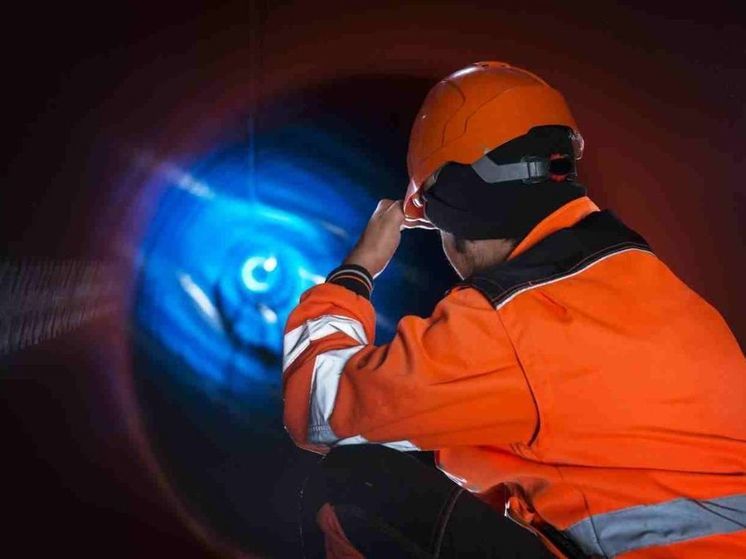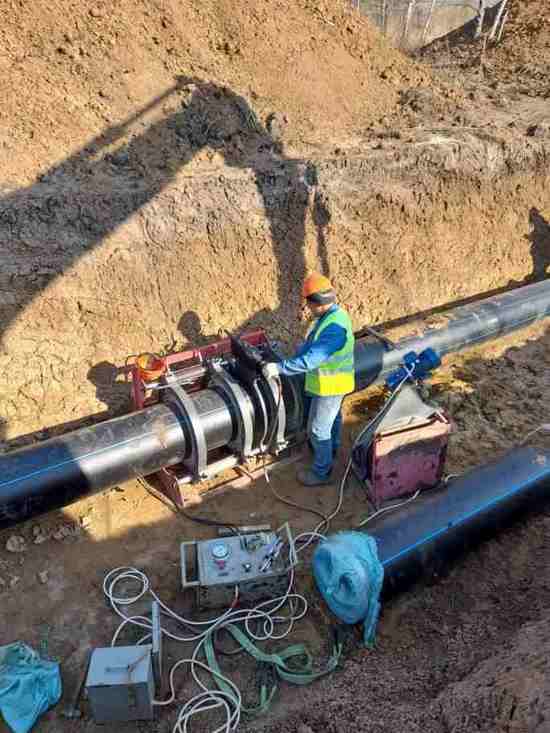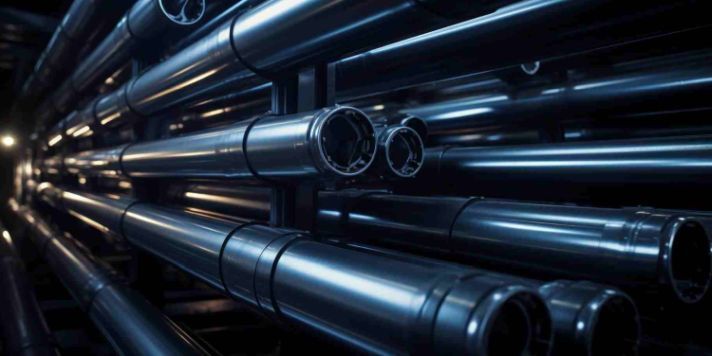Modernization of the country's housing and communal services requires a new approach
The President of Russia instructed to increase the pace of modernization of municipal infrastructure and allocate 4.5 trillion rubles for these purposes by 2030, including private investments and federal budget funds in the amount of at least 150 billion rubles. annually. Such an instruction based on the results of the head of state’s address to the Federal Assembly was published on March 30 on the Kremlin website.
 Photo: freepik.com
Photo: freepik.com
A series of utility accidents that swept across Russia in January 2024 did not go unnoticed by the federal authorities. The problem of critical deterioration of housing and communal infrastructure, confusion in the sphere of economic entities and criminal cases in the wake of breakthroughs in heating networks, which had a particular resonance in the Moscow region, became the object of close attention from the top officials of the state. It would be a big mistake to think that one can simply “flood” this industry with money, which is in dire need of a change in approach to modernization. Russia must follow the global trend towards sustainable development, which should consist of the efficient use of available resources, starting with boiler houses, heating networks, pipes, ending with the use of innovative energy-saving materials.
Modernization of municipal infrastructure in Russia requires significant efforts, reacted on the instructions of the President, Prime Minister of the Russian Federation Mikhail Mishustin. According to him, “close attention and significant efforts, of course, require the modernization of utility infrastructure. We solve the problem comprehensively.”
According to Rosstat, the depreciation rates of the housing stock and public utilities throughout the country are increasing, while the renewal rate is decreasing. In most regions, housing and communal services equipment requires repair or replacement.
Last year, according to the Ministry of Construction, wear and tear of networks accounted for more than 40% of linear facilities — they needed replacement or major repairs. Almost 1 million km of engineering communications, 43% of water supply networks, 30% of heat supply and 46% of wastewater disposal were subject to major repairs.  Photo: mgkh.mosreg.ru
Photo: mgkh.mosreg.ru
In some regions the situation looks depressing: the wear and tear of the heating infrastructure in Tver is about 79%, in Tomsk — 80%, in St. Petersburg — 65–70%.
According to official methods, wear of 40–60% is considered pre-accident, and more than 60% is considered dangerous for operation. We see confirmation from the accident statistics, which are growing every year. Over the past three years, the number of utility accidents has almost doubled. So, if in 2021 there were 2900 accidents, then in 2023 there are already more than 4900.
Chronic underinvestment in the country's public utilities inevitably led to increased wear and tear of infrastructure and equipment and an increase in the risks of utility accidents, which are especially painful for people in conditions of abnormal frosts.
The root of the problem, according to experts, lies not only in chronic underfunding in the regions, but also in an outdated approach to network modernization. Huge money “poured” into the housing and communal services system seems to flow, like water from countless breakthroughs, literally into the ground. Spot patching of holes, replacing pipes with the same ones, cosmetic repairs of housing, without the use of modern energy-saving technologies are ineffective and will only lead to new accidents, surges of discontent among residents and calls to the hotline to the president.
– Programs to improve energy efficiency are constantly being adopted. This year, the Ministry of Energy adopted a new program, but all of them are not being implemented,” said the deputy chairman of the State Duma Committee on Construction and Housing and Public Utilities on RBC. – Unfortunately, new programs are accepted without analyzing the previous ones. Improving energy efficiency is everything to us. If we overpay for something, it is not because the tariffs are high, but because we consume an unrealistically large amount of a resource that we essentially do not need. Energy efficiency in the housing and public utilities sector is progressing extremely slowly, so it is necessary to link investment programs and tariffs to the results achieved in this area, and rebuild major repairs. Currently, major renovations do not make a house more energy efficient; they are not carried out comprehensively. There are still many tasks. We are probably still too rich to start saving. Infrastructure inefficiency, old boiler houses with low efficiency, which have huge reserve capacities. All this is reflected in the tariffs. Of course, modernization will help here.
According to the political scientist, professor at the Higher School of Economics, in order to answer the question whether there is a connection between new multi-story construction and accidents in municipal heating networks, it is necessary to analyze the housing stock, and if it is new , but is “planted” on old infrastructure, then the probability is high.
– As a rule, in new microdistricts they still install their own boiler houses, and they run on gas or they are connected to the networks of large thermal power plants, which have redundancy, switching schemes, serious repair teams, a supply of pipes and shut-off valves. Networks in old neighborhoods are more likely to break, and boilers in old boiler houses are breaking down. That is, the reason is also systemic, but related to wear and tear,” he notes.
An analyst from the All-Russian Popular Front agrees with him.
“Cities are being actively built up, but at the same time there is a natural wear and tear of energy facilities and corrosion of iron pipes, many of which were laid in Soviet times,” says a representative of the ONF. – We need to improve pipe diagnostics. Turning off hot water in the summer and testing them under pressure is an old-fashioned way. You need to involve science — for example, you can launch a robot into a pipe that will look for damage.  Photo: freepik.com
Photo: freepik.com
The problem of deterioration of communal infrastructure has become global for the country. It is no coincidence that today unprecedented funds are allocated for this. It is important that a systematic approach be introduced in the modernization of the long-suffering “communal service”. Only energetic and, most importantly, effective measures will make it possible to reverse the trend, and people will no longer anxiously wait for the next winter. The introduction of modern efficient technologies, innovative materials with a longer life cycle than analogues, which can reduce losses of energy resources and consume less electricity, can become the long-awaited driver for the modernization of public utilities.


